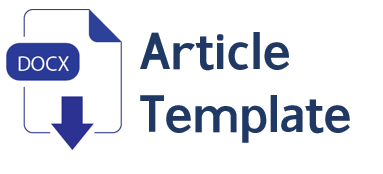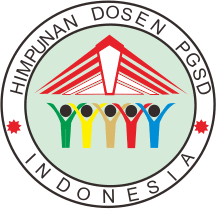Effectiveness Of Teaching And Learning Process Results Using A Tpack Based Approach In Yakhada Private Private Primary School, Hamparan Perak District, Deli Serdang District, North Sumatra
Abstract
Keywords
Full Text:
PDFReferences
Abbit, J. T. (2011). Measuring technological pedagogical content knowledge in preservice teacher education: A review of current methods and instruments. Journal of research on Technology in Education, 43(4), 281-300
Akhwani, & Nurizka, R. (2021). Quasi- Experimental Meta-Analysis of the Value Clarification Technique (VCT) Learning Model on Primary School Student Learning Achievement. Basicedu Journal, 5(2), 446-454. https://doi.org/https:doi.org/10.31004/b asicedu.v5i2.706 Copyright
Alfianika, N. (2016). Textbook of Indonesian Language Teaching Research Methods. Yogyakarta: Deepublish
Arnesti, N., & Hamid, A. (2015). Use of Online
- Offline Learning Media and Interpersonal Communication on English Learning Outcomes. Journal of Information & Communication Technology in Education, 2 (1). https://doi.org/10.24114/jtikp.v2il.3284
Baser, D., Kopcha, T.J., 7 Ozden, M.Y. (2016). Developing a technological pedagogical content knowledge (TPACK) assessment for preservice teachers learning to teach English as a foreign language. Computer Assisted Language Learning, 29(4), 749-764. https://doi.org/10.1080/09588221.2015.1047456
Canbazoglu Bilici, S., Guzey, S.S., & Yamak, H. (2016). Assessing preservice science teacher technological pedagogical content knowledge (TPACK) through observations and lesson plans. Research in Science & Technological Education, 34(2), 237-251.
Cuhadar, C. (2018). Investigation of pre-service Teacher Level of Readiness to Technology Integration in Education. Contemporary Educational Technology, 9(1), 61-75
Danim Sudarwan and Darwis, 2002. Becoming a Qualitative Researcher. Bandung: CV. Faithful Library.
Dimyati and Mudjono. 2006. Learning and Learning, Rineka Cipta; Jakarta. Djamarah. SB 2010. Teaching and Learning Strategy, PT. Adimahashyatiah; Jakarta
Djarwanto, 2003. Non-Parametric Statistics, Bandung: BPFE.
Framework for 21st Century Learning P21. (tt). Retrieved August 4, 2018, from http://p21.org/our- work/p21- framework
Hamalik, O. 2011. Teaching and Learning Process, Jakarta; Buni Literacy.
Hamdani. 2011. Teaching and Learning Strategies. Bandung; Faithful Library
Hamdani, 2011. Teaching and Learning Strategies. Bandung: Pustaka Setia Bandung.
Jang, S.-J., & Tsai, M.-F. (2012). Exploring the TPACK of Taiwanese elementary mathematics and science teachers with respect to use of interactive whiteboards, Computers & Education , 59(2),327-338.
http//doi.org/10.1016/j.compedu.2012. 02.003
Koehler, M. J., & Mishra, P., Cain, W. (2013). What is technological pedagogical content knowledge (TPACK)? Journal of education, 193(3), 13-19
Koehler, M., & Mishra, P. (2009). What is technological pedagogical content knowledge (TPACK)? Contemporary issues in technology and teacher education, 9(1), 60-70.
Maeng, J., Mulvery, B., Smetana, L., & Bell, R. (2013). Preservice Teacher TPACK: Using Technology to Support Inquiry Instruction. Journal of Science Education and Technology, 22(6), 838-
Mouza, C. (2016). Developing and assessing TPACK among pre-service teachers. Handbook of technological pedagogical content knowledge (TPACK) for educators, 169
Muhibbin Shah. (2010). Educational Psychology. Bandung: PT. Rosdakarya Teenager.
Muilenburg, L., & Berge, Z. (2015). Revisiting teacher preparation. Quarterly Review of Distance Education Journal Issue, 16(2), 93-105.
Munawar, H. (2019). The application of STAD- Cooperative Learning Model: Efforts to increase motivation and Learning Outcomes of students in Class 5 SD N 07 Ledok Salatiga in Mathematics subjecth in Folding Symmetry and Rotating Symmetry topics. Mudarrisa: Journal of Islamic Education Studies, 11(2), 114-135.
Purwanto. 2011. Evaluation of Learning Results, (Yogyakarta: Learning Library. 2009) p.64
Purwanto, MN Educational Psychology, Bandung: Rosdakarya Youth, 2007
Raman, A. (2014). TPACK Confidence of Pre- service Teachers in Universiti Utara Malaysia. Mediterranean journal of Social Sciences. http://doi.org/10.5901/mjss.2014.v5n22 p167
Sanjaya, Vienna. 2006. Learning strategies oriented towards educational process standards. Jakarta : Kencana Prenada Media Group.
Slameto. (2010). Learning and Influencing Factors. Rineka Cipta.
Slim, C., Finger, G., & Smart, V. (2016). 4Developing TPACK: Envisioning Technological Pedagogical Reasoning. In Handbook of technological pedagogical content knowledge (TPACK) for educators (pp. 63-72). Routledge.
Spector, J.M., Merrill, M.D., Elen, J., & Bishop, M.J. (2014). Handbook of research on educational communications and technology: Fourth edition. Handbook of Research on Educational Communications and Technology: Fourth Edition, 1-1005. https://doi.org/10.1007/978-1-4614- 3185-5
Sugiyono, (2012). Understanding Qualitative Research, Bandung: Alfabeta.
Sugiyono, (2017). Quantitative, Qualitative and RnD Research Methods, Bandung: Alfabeta
DOI: https://doi.org/10.30596/ejoes.v3i2.10278
Refbacks
- There are currently no refbacks.
(EJOES) Educational Journal of Elementary School
Department of Elementary School Teacher Educational, University of Muhammadiya Sumatera UtaraKampus 1 FKIP UMSU
Jl. Kapten Muchtar Basri No.3, Glugur Darat II,Medan
Sumatera Utara-20238
E-mail: ejoes@umsu.ac.id

Educational Journal of Elementary School (EJoES) is licensed under a Creative Commons Attribution-ShareAlike 4.0 International License








